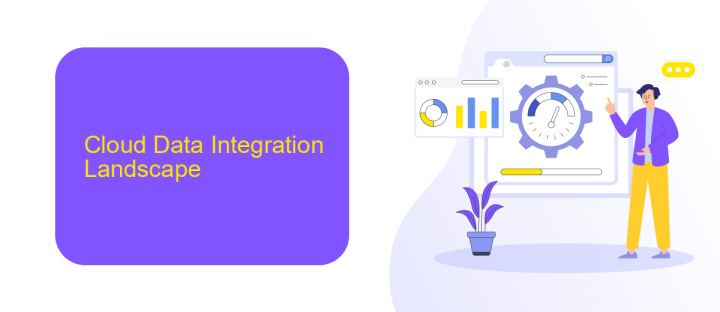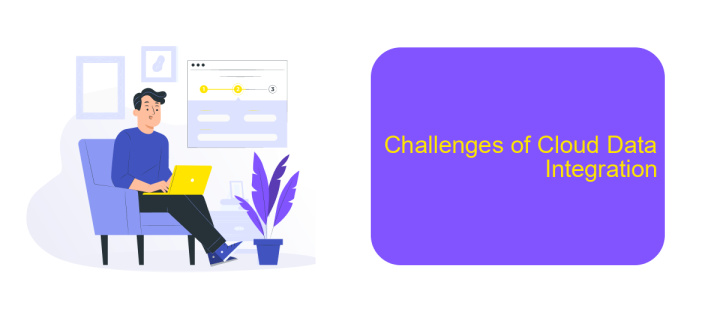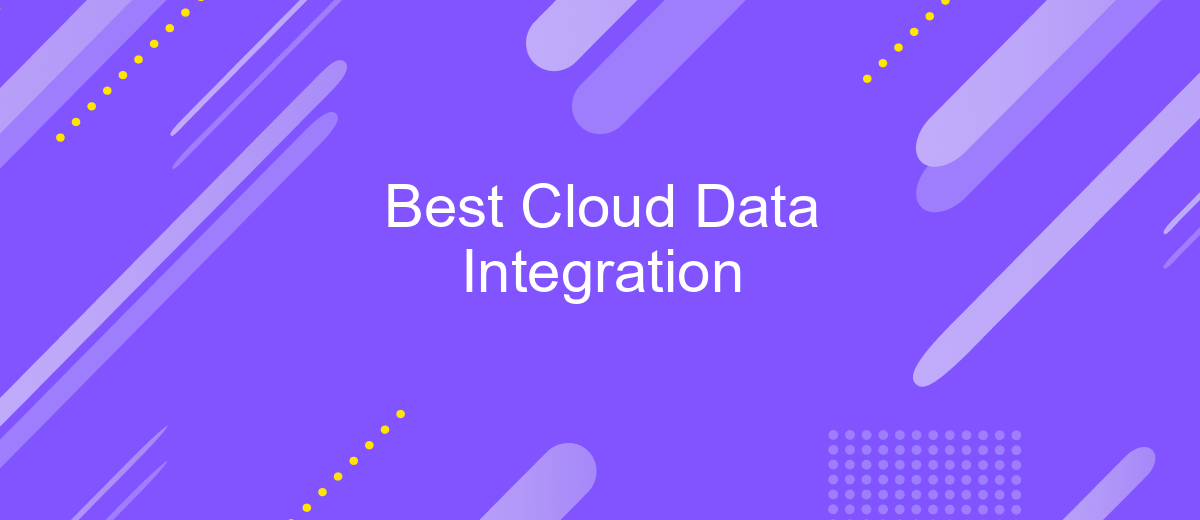Best Cloud Data Integration
In today's data-driven world, effective cloud data integration is essential for businesses looking to streamline operations, enhance decision-making, and maintain a competitive edge. This article explores the best cloud data integration solutions available, evaluating their features, benefits, and suitability for various organizational needs. Whether you're a small startup or a large enterprise, finding the right integration tool can transform your data management strategy.
Introduction
In today's fast-paced digital world, businesses are increasingly relying on cloud data integration to streamline operations, enhance data accessibility, and drive informed decision-making. Cloud data integration involves combining data from various sources into a unified, cloud-based platform, allowing for seamless data flow and real-time analytics.
- Improved data accessibility and sharing
- Enhanced data quality and consistency
- Real-time data synchronization
- Scalability and flexibility
- Cost-efficiency and reduced IT overhead
One of the leading tools in this domain is ApiX-Drive, which simplifies the integration process by offering a user-friendly interface and a wide range of pre-built connectors. With ApiX-Drive, businesses can easily connect their cloud applications and automate workflows without the need for extensive coding knowledge. This not only saves time but also ensures that data remains accurate and up-to-date across all platforms, empowering businesses to make smarter, data-driven decisions.
Cloud Data Integration Landscape

Cloud data integration has become a critical component for modern businesses looking to streamline their operations and make data-driven decisions. The landscape is diverse, featuring various tools and platforms designed to connect disparate data sources, unify data, and ensure seamless data flow across different systems. These solutions range from traditional ETL (Extract, Transform, Load) tools to more advanced iPaaS (Integration Platform as a Service) offerings, which provide a more flexible and scalable approach to data integration.
One notable player in this space is ApiX-Drive, a service that simplifies the process of integrating various cloud applications and services. With its user-friendly interface and robust functionality, ApiX-Drive allows businesses to automate data workflows without requiring extensive technical expertise. This platform supports a wide array of integrations, enabling organizations to connect their CRM, ERP, marketing tools, and other essential systems effortlessly. By leveraging such solutions, companies can enhance operational efficiency, improve data accuracy, and ultimately drive better business outcomes.
Benefits of Cloud Data Integration

Cloud data integration offers numerous advantages that can significantly enhance business operations. By seamlessly connecting disparate data sources, organizations can achieve a unified view of their data, leading to more informed decision-making and improved efficiency.
- Scalability: Cloud solutions allow businesses to easily scale their data integration processes as their needs grow, without the need for significant hardware investments.
- Cost Efficiency: Utilizing cloud-based tools eliminates the need for expensive on-premise infrastructure, reducing both initial and ongoing costs.
- Real-Time Data Access: Cloud integration enables real-time data synchronization, ensuring that all stakeholders have access to the most current information.
- Enhanced Collaboration: With cloud integration, teams can easily share and collaborate on data, regardless of their geographical location.
- Security: Cloud providers invest heavily in security measures, offering robust protection for integrated data.
Services like ApiX-Drive can further streamline the process of cloud data integration by providing user-friendly interfaces and automation capabilities. These tools simplify the setup and management of integrations, allowing businesses to focus on leveraging their data for strategic insights rather than getting bogged down in technical complexities.
Challenges of Cloud Data Integration

Cloud data integration offers numerous benefits, but it also comes with its own set of challenges. One of the primary obstacles is ensuring data security and compliance, as sensitive information is often transferred between systems. Organizations must implement robust encryption and access control measures to safeguard data.
Another significant challenge is data consistency. With multiple data sources feeding into a cloud platform, maintaining consistent and accurate data can be difficult. Data discrepancies can lead to errors in analysis and decision-making, making it crucial to have effective data validation processes in place.
- Security and Compliance
- Data Consistency
- Latency and Performance Issues
- Integration Complexity
To address these challenges, many organizations turn to integration platforms like ApiX-Drive. This service allows for seamless connection between various applications and systems, automating data transfers and ensuring real-time synchronization. By leveraging such tools, businesses can mitigate the complexities associated with cloud data integration and focus on leveraging their data for strategic insights.
Conclusion
In conclusion, effective cloud data integration is a critical component for businesses aiming to streamline their operations and enhance data accessibility. By leveraging robust integration platforms, organizations can seamlessly connect disparate data sources, ensuring that vital information flows smoothly across various systems. This not only improves decision-making processes but also fosters innovation and agility in a rapidly evolving digital landscape.
One such platform that stands out in facilitating these integrations is ApiX-Drive. Its user-friendly interface and powerful automation capabilities enable businesses to set up and manage integrations with ease, significantly reducing the time and effort required. By utilizing ApiX-Drive, companies can ensure that their data is consistently synchronized, accurate, and readily available, thus driving efficiency and supporting strategic initiatives. As cloud technology continues to advance, investing in reliable data integration solutions will remain paramount for maintaining a competitive edge.
FAQ
What is cloud data integration?
Why is cloud data integration important?
What are the key features to look for in a cloud data integration tool?
How can automation improve cloud data integration?
Can I integrate data from different cloud services without extensive technical knowledge?
Apix-Drive is a simple and efficient system connector that will help you automate routine tasks and optimize business processes. You can save time and money, direct these resources to more important purposes. Test ApiX-Drive and make sure that this tool will relieve your employees and after 5 minutes of settings your business will start working faster.

